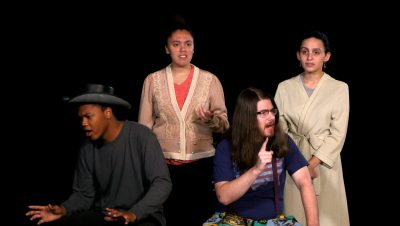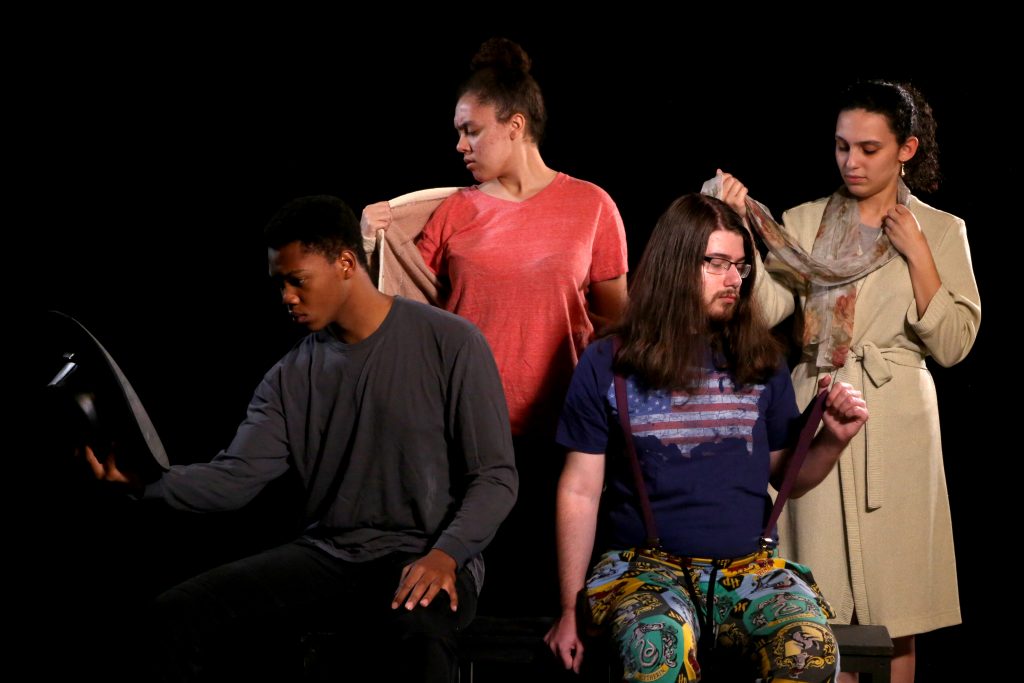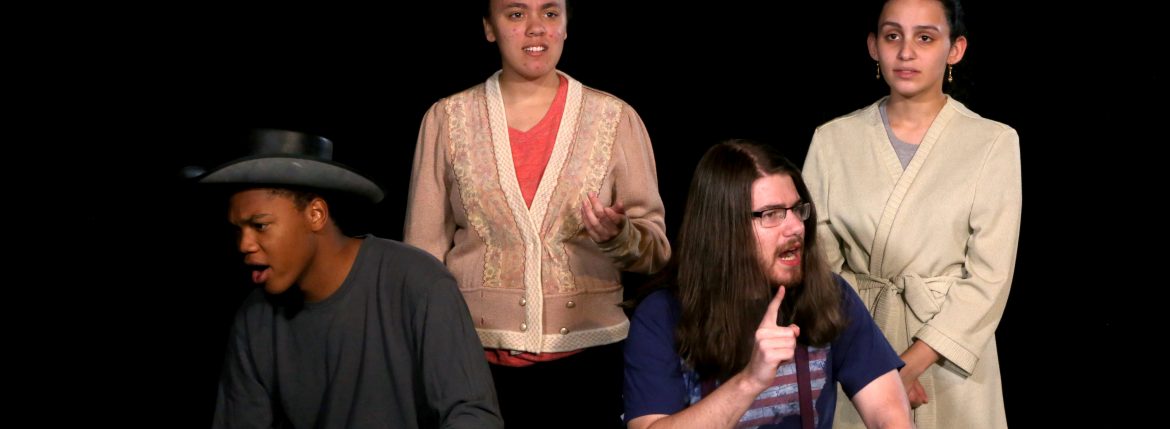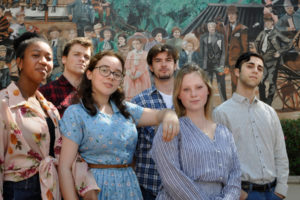
The Laramie Project is a play originally written by Moisés Kaufman about a man named Matthew Shepard being brutally murdered in 1998 because he was gay. Logically, it exhibits dark themes that address past and current problems in society and must be handled delicately in order to present the correct visual and lyrical statement. That is why Associate Professor and Director of Theatre Arts, Julia Schmitt, is planning on directing this project using collaborative techniques and open communication.
Julia Schmitt has been involved in theatre since 12 years old, continuing all the way through finishing graduate degrees in 1999 and 2003 and teaching and directing collegiate theatre for almost 20 years.
She has been drawn to directing for a long time, saying, “In college, I had the opportunity to direct a couple of different productions. For me, it felt like a good fit. I was able to think conceptually about the entirety of a production, and it was a great experience to get to be involved in every facet of the production.”
In order to manifest this show effectively, Schmitt is going to work at every level of production to create an environment where everybody can participate equally. She enjoys taking in each of the actors’ and designers’ ideas, especially if she hasn’t considered it, and taking into consideration every possible view-point. This strategy helps aid the ensemble nature of the play by helping each member of the cast feel heard and participatory.

The Laramie Project involves a very even playing field for the actors where each actor holds more than one role, so Schmitt must approach this show differently than other shows she’s directed. She plans on using some alternative techniques to better acquaint the actors with their characters: “I’ve been incorporating some of the performance theory made popular by the actor Michael Chekhov, specifically his ideas on archetypal character and archetypal actions,” she said. “Actors have been asked to think of their different characters in relation to a long list of archetypal characters, and we’re working on different ways to embody those archetypes through physical and vocal characterization. The performances start off in pretty broad terms, just as a means for actors to start to differentiate characters, but over time, we will be able to individualize them more and more as the production takes shape.”
Schmitt also wants to continue the dialogue between the cast and crew as pertains to the very serious topics involved in The Laramie Project, making sure they all have time to talk about and work through the dark scenes in the show. She hopes that each person in the audience will be moved to monitor their own response to the play, its content, and how times have changed, if at all. Referencing current societal attitudes, Schmitt said “[I]t has been over twenty years since the death of Matthew Shepard, and since this play debuted. And yet, there are many moments in the play that really resonate with me and with fellow cast members. I feel that discussions about hate, empathy, and compassion will always be relevant, and the play certainly feels as though it is of ‘this time.’” Overall, Schmitt wants to move the audience as much as possible and hopefully impact their point of view to encourage a more accepting and thoughtful world going forward.
test2




